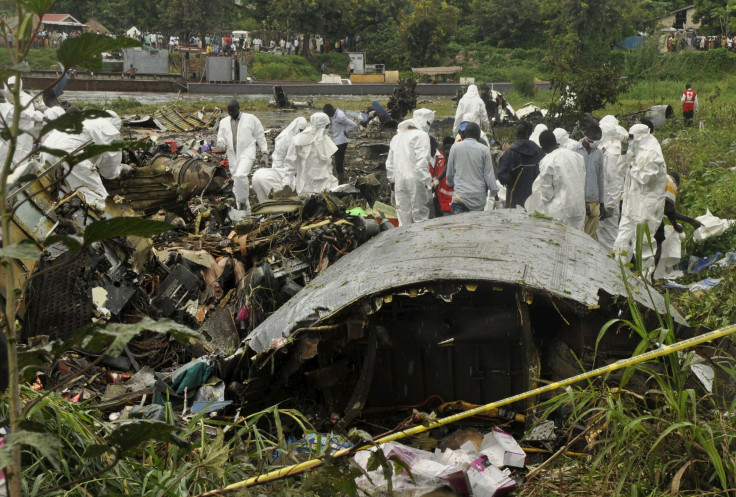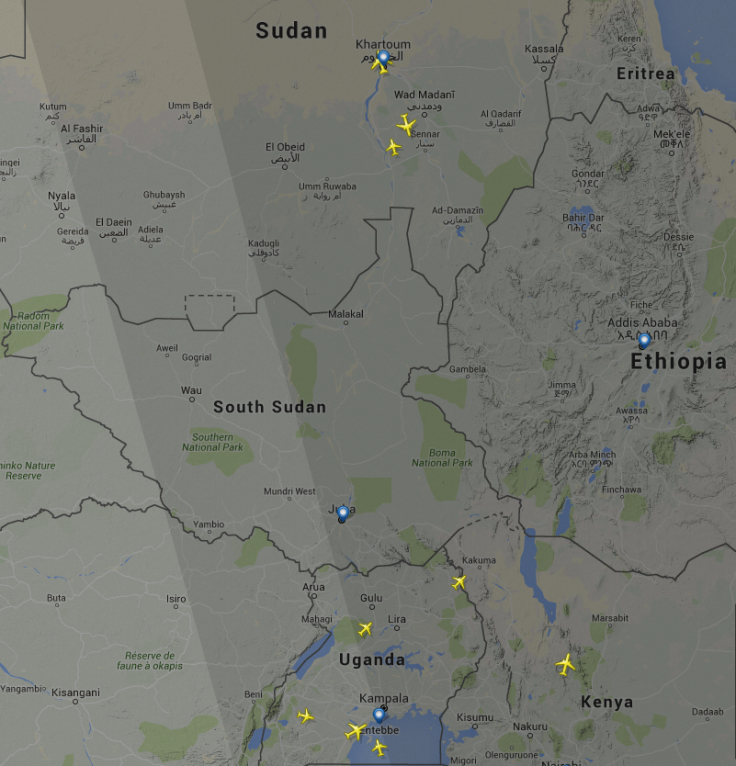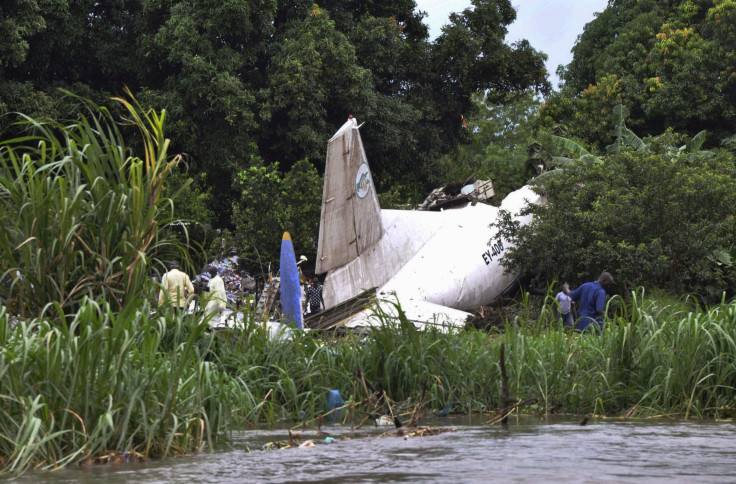South Sudan Plane Crash Update: Lax Safety Standards Suspected For Soviet-Era Aircraft That Left Dozens Dead

Poor maintenance, overcrowding and lax safety standards likely contributed to the Wednesday crash of a Soviet-era plane in South Sudan, experts said. Soldiers and civilians were on board the Antonov 12 B turboprop plane when it crashed shortly after takeoff from Juba International Airport, killing more than 30 people, the New York Times reported.
The Antonov 12 is a commonly used cargo plane around the world, analysts said. The plane that crashed had been in service since 1971, according to the Aviation Safety Network. A presidential spokesperson told CNN that engine failure may have caused the crash, but that had not been confirmed, and an investigation was underway to determine the official cause.
“It’s the worst possible set of circumstances,” said aviation analyst Richard Aboulafia, vice president of analysis at Teal Group, an aerospace and defense industry think tank based in Fairfax, Virginia. “It’s a recipe for trouble,” he added, citing the age of the plane as well as likely poor oversight and procedure on the ground.
The air routes above the African nation South Sudan are not highly traveled, according to Aboulafia, who said the region is not a main economic transportation artery. The Antonov 12 aircraft can be reliably used for more than 40 years, but it requires “proper care and maintenance,” Aboulafia said.

The flight likely had too many people on board, said Kenyi Galla, a manager for a company that operates chartered flights in South Sudan.
“Normally [this flight carries] 12 people, but the problem is they added more people," he told the Associated Press. “This plane is just for cargo, not for passengers. It was just chartered for goods.”
A South Sudanese military spokesman told the New York Times that officials were still trying to determine the exact number of deaths and that it was common for additional people to board planes when a flight was available in the country.
Eighteen people were onboard the aircraft, including 12 South Sudanese, five Armenians and one Russian, and only three survived, according to a government spokesperson. It remained unclear how many people on the ground had been killed by the plane crash, but Reuters reported as many as 41 people were killed in total. The plane was en route to the northern oil-rich town of Paloch when it crashed close to the White Nile River. The plane belonged to Allied Services Ltd., a logistics and freight company.
“It [the crash] has more to do with regulation and safety standards in third [party] countries such as South Sudan,” said Alex Kokcharov, an analyst focused on Europe and the Commonwealth of Independent States for IHS, a global economics and risk analysis firm, when asked about the Soviet-era aircraft.
Several Sudanese airlines have been banned from flying into the EU due to safety standards.

South Sudan became the world’s newest state in 2011 and has been mired in conflict since 2013. The conflict began when President Salva Kiir, an ethnic Dinka, fired Vice President Riek Machar, an ethnic Nuer, leading to attacks among Dinkas and Nuers. The conflict has resulted in the deaths of thousands and the internal displacement of more than 1.5 million people. The United Nations reported that 34 humanitarian workers have been killed in South Sudan since 2013. There have also been reports of civil aircraft being fired on during the conflict.
The crash in South Sudan comes a few days after the crash of a Russian plane flying from Egypt to St. Petersburg. The Saturday crash of Metrojet flight 9268 in Egypt killed all 224 people on board and has put the spotlight on the Russian aviation industry. Investigators are still working to determine the cause of the crash, with Egypt’s president strongly denying that terrorists were responsible for the downing of the plane.
Russia’s domestic aviation industry remains fragmented with approximately 150 airlines, although fewer than half fly outside the country, Kokcharov said.
“Smaller airlines in Russia don’t have sufficient safety standards,” Kokcharov said, noting that Russian legislators have proposed an industry consolidation in the wake of the Sinai crash.
© Copyright IBTimes 2024. All rights reserved.












